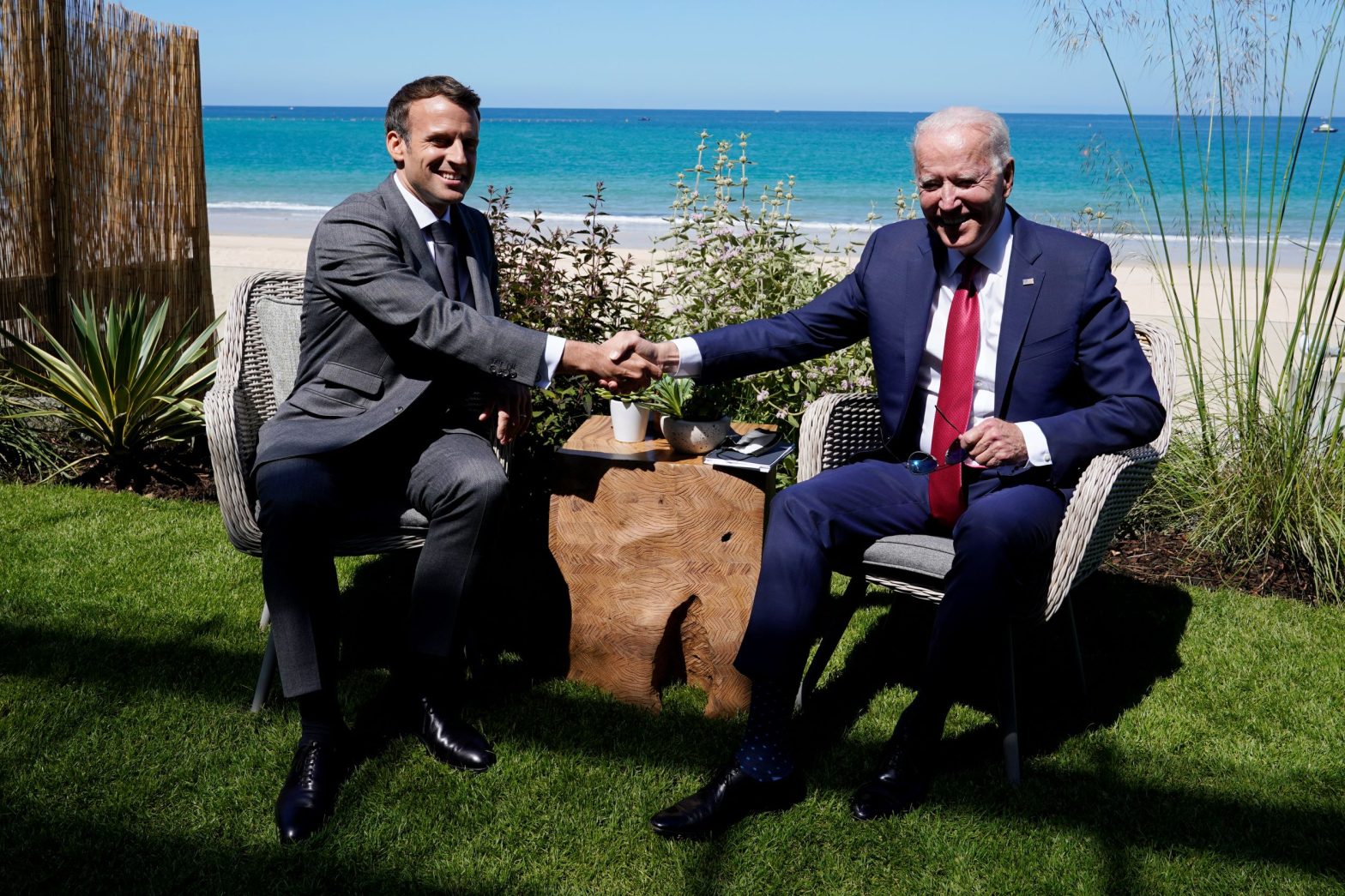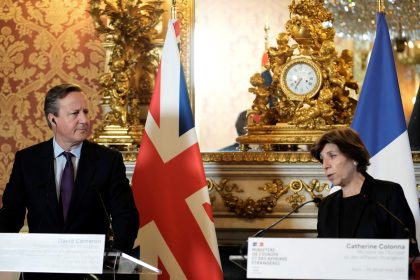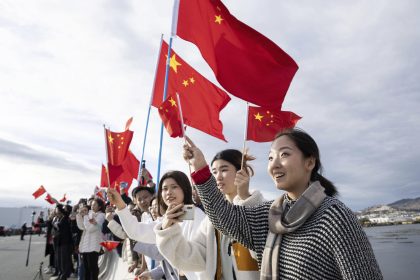Biden Discusses AUKUS Partnership with Macron Amid ‘Diplomatic Crisis’

WASHINGTON — President Joe Biden spoke with French President Emmanuel Macron on Wednesday to discuss the United States’ new strategic partnership with the U.K. and Australia. Australia is set to construct eight nuclear-powered submarines through its alliance with the U.S. and the U.K., dashing the country’s previous submarine partnership with France.
Both Macron and Biden agreed the leaders should have consulted with France prior to coming to an agreement on a new partnership, and Biden underscored his commitment to open dialogue between the allies going forward. Macron and Biden will engage in in-depth discussions to ensure “confidence and proposing concrete measures toward common objectives,” before meeting in person at the end of October, the two presidents announced in a joint statement.
Consequently, Macron also announced he would return his ambassador to Washington after previously issuing a recall for “consultations.” Australian, U.K. and U.S. officials have informed the United Nations’ International Atomic Energy Agency of their intent to help Australia acquire nuclear-powered submarines.
Australian government executives dubbed the trilateral security partnership “AUKUS” in a media statement announcing the move. Together, the countries vowed to “protect shared values and promote security and prosperity in the Indo-Pacific region” through the strategic partnership.
“The security challenges in the Indo-Pacific region have grown significantly,” Australian officials said in a written statement. “Military modernization is occurring at an unprecedented rate and capabilities are rapidly advancing and their reach expanding. The technological edge enjoyed by Australia and our partners is narrowing.
“AUKUS will build on the three nations’ longstanding and ongoing bilateral ties, and will enable the partners to significantly deepen cooperation on a range of emerging security and defense capabilities, which will enhance joint capability and interoperability. Initial efforts under AUKUS will focus on cyber capabilities, artificial intelligence, quantum technologies, and additional undersea capabilities.”
Australia chose AUKUS over a deal initiated in 2016 with France, worth at least $66 billion, to build 12 conventional diesel-electric submarines, according to the Associated Press. French officials maintain they were blindsided by the announcement of the deal.
Only five nuclear weapons states have been recognized under the U.N.’s nuclear Non-Proliferation Treaty: the U.S., U.K., Russia, China and France.
“The cancellation of the attack class submarine program binding Australia and France since 2016, and the announcement of a new partnership with the United States meant to launch studies on a possible future cooperation on nuclear-powered submarines, constitute unacceptable behavior between allies and partners, whose consequences directly affect the vision we have of our alliances, of our partnerships and of the importance of the Indo-Pacific for Europe,” Jean-Yves Le Drian, French minister for Europe and Foreign Affairs, said in a written statement.
Through AUKUS, Australia will become the second country after the U.K. to build nuclear-powered submarines with U.S. nuclear technology. The countries now must consult with the U.N.’s International Atomic Energy Agency to reach an agreement with the body.
France canceled a gala scheduled for Friday at its embassy in Washington to mark the 240th anniversary of a Revolutionary War battle in a symbolic gesture of its dissatisfaction with the move. The new partnership is seen as a counter to China’s growing military influence in the Indo-Pacific, although senior Biden administration officials who briefed reporters on the matter denied the move was made in opposition to Beijing.
“The nuclear submarine cooperation among the U.S., the U.K. and Australia severely undermines regional peace and stability, intensifies arms race and undercuts international non-proliferation efforts,” Lijian Zhao, deputy director of the Chinese Ministry of Foreign Affairs Information Department, said on Twitter. “It’s highly irresponsible and shows double standards on using nuclear export for geopolitical games.”
The leaders of the three countries in the AUKUS partnership emphasized Australia would not be fielding nuclear weapons but would be utilizing nuclear propulsion systems for the submarines to bolster its national defense. Australian Prime Minister Scott Morrison indicated his country will satisfy all of its nuclear non-proliferation obligations in the deal.
British Prime Minister Boris Johnson maintained his country’s relations with France were “rock solid” following the announcement. Although New Zealand Prime Minister Jacinda Ardern was generally supportive of the endeavor, she specified that Australia’s newly acquired submarines would not be prohibited in its territorial waters.
“The developments that have occurred since 2016 do now make a nuclear-powered submarine fleet a feasible option for Australia, which is what I first tasked the secretary of defense to inquire into,” Morrison said during a press conference. “We now have the support and expertise of the United States and the United Kingdom. Next generation nuclear-powered submarines will use reactors that do not need refueling during the life of the boat. A civil nuclear power capability here in Australia is not required to pursue this new capability.”
Morrison continued, “These are game-changing differences in the technology and the opportunity that Australia has, but there have also been game-changing developments in the strategic circumstances of our region, which continue to accelerate at a pace even not envisaged as little as five years ago.”























